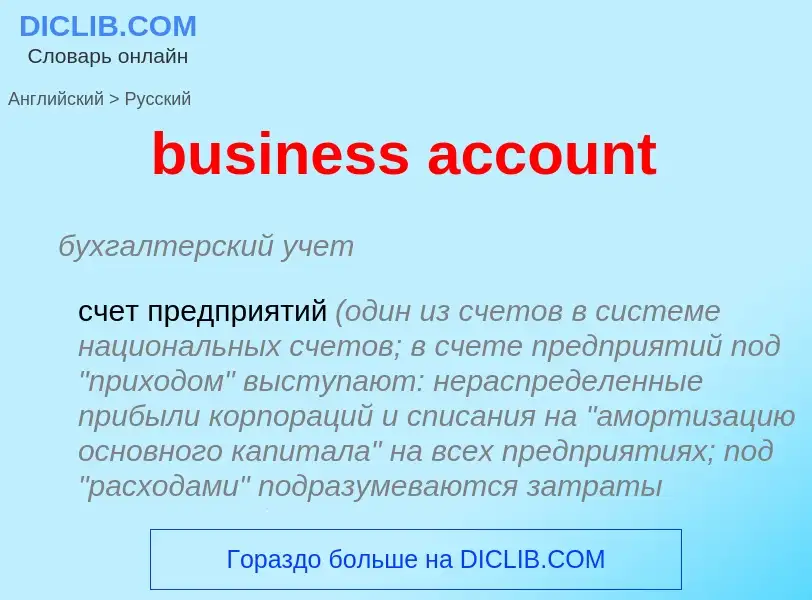Traducción y análisis de palabras por inteligencia artificial ChatGPT
En esta página puede obtener un análisis detallado de una palabra o frase, producido utilizando la mejor tecnología de inteligencia artificial hasta la fecha:
- cómo se usa la palabra
- frecuencia de uso
- se utiliza con más frecuencia en el habla oral o escrita
- opciones de traducción
- ejemplos de uso (varias frases con traducción)
- etimología
business account - traducción al ruso
бухгалтерский учет
счет предприятий (один из счетов в системе национальных счетов; в счете предприятий под "приходом" выступают: нераспределенные прибыли корпораций и списания на "амортизацию основного капитала" на всех предприятиях; под "расходами" подразумеваются затраты предприятий на: новые производственные здания и сооружения, производственное оборудование, чистый прирост товарно-материальных запасов и жилищное строительство)
экономика
бизнес-счет (вид тарифа, предлагаемого интернет-компаниями пользователям - юридическим лицам)
Definición
)
Wikipedia
A transaction account, also called a checking account, chequing account, current account, demand deposit account, or share draft account at credit unions, is a deposit account held at a bank or other financial institution. It is available to the account owner "on demand" and is available for frequent and immediate access by the account owner or to others as the account owner may direct. Access may be in a variety of ways, such as cash withdrawals, use of debit cards, cheques (checks) and electronic transfer. In economic terms, the funds held in a transaction account are regarded as liquid funds. In accounting terms, they are considered as cash.
Transaction accounts are known by a variety of descriptions, including a current account (British English), chequing account or checking account when held by a bank, share draft account when held by a credit union in North America. In the United Kingdom, Hong Kong, India and a number of other countries, they are commonly called current or cheque accounts. Because money is available on demand they are also sometimes known as demand accounts or demand deposit accounts. In the United States, NOW accounts operate as transaction accounts.
Transaction accounts are operated by both businesses and personal users. Depending on the country and local demand economics earning from interest rates varies. Again depending on the country the financial institution that maintains the account may charge the account holder maintenance or transaction fees or offer the service free to the holder and charge only if the holder uses an add-on service such as an overdraft.

